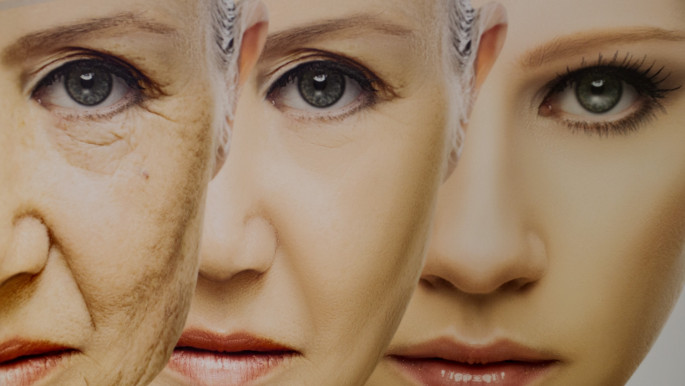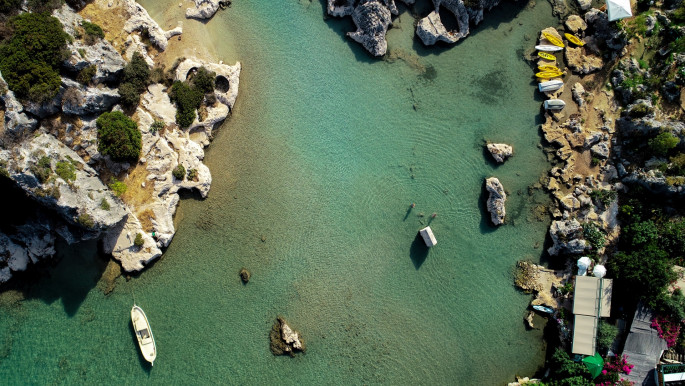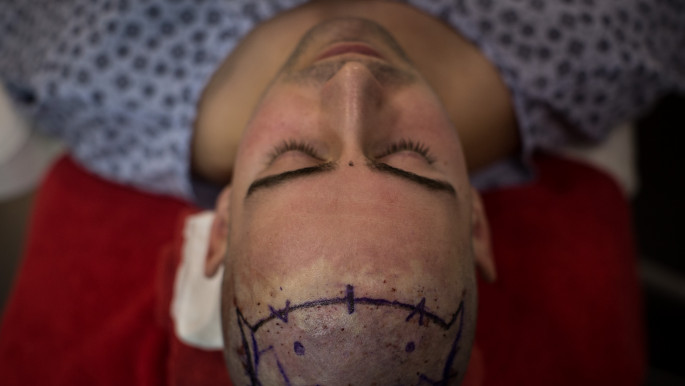The future of medical tourism in Turkey: How coronavirus stalled a booming industry
From veneers to Brazilian butt lifts, there's very little that the country does not offer in terms of cosmetic surgery. But, like many sectors, the cosmetic industry has suffered as non-essential flights were grounded.
Medical tourism has boosted Turkey's image, putting it up there with other countries, such as Mexico, where, in 2018, the industry generated a revenue of $14.1 million.
South Korea is also a popular destination for those wanting cosmetic surgery, with medical tourism becoming more popular than health tourism as self-improvement becomes a global marketplace.
As it becomes an increasingly popular destination for prospective clients, in 2017 alone the Turkish Healthcare Travel Council reported that 765,000 medical tourists from 144 different countries had "contributed with a direct income of 7.2 billion USD to the Turkish economy."
To further incentivise businesses to increase what has proven itself to be a viable financial opportunity, in April 2018, former Turkish finance minister Naci Ağbal announced: "We will offer additional incentives to private companies for their health tourism investments."
 |
From veneers to Brazilian butt lifts, there's very little that the country does not offer in terms of cosmetic surgery |  |
The booming industry has contributed greatly to the wider Turkish economy, leading the government to set targets of aiming to bring in two million patients and $20 billion in revenue annually by 2023.
But as the country explores the relatively new marketplace and moves higher up on the ranking of countries that provide excellent foreign healthcare services, it is important to acknowledge how the country has been advertising itself throughout the last decade or so.
 |
|
| The booming industry has contributed greatly to the wider Turkish economy. [Getty] |
The rise of influencers has contributed, in part, to the growth of cosmetic surgery and its demand. As trends of lip fillers, nose jobs and, more recently, 'Brazilian butt lifts' become en vogue, many are trying to buy the 'Instagram face'.
This beauty aesthetic is roughly understood as the combination of high cheekbones, fuller lips and an angled jawline, as the New Yorker describes: "It's a young face, of course, with poreless skin and plump, high cheekbones. It has catlike eyes and long, cartoonish lashes; it has a small, neat nose and full, lush lips."
As trends rise, so do those who capitalise from it. The growth of Instagram plastic surgery doctors and clinics that work to liaise with prospective foreign clients has boomed on the app, showing before and after pictures that are crafted to be seen as desirable. But how does cosmetic tourism now function in a world where a global pandemic has halted international travel?
Speaking to Ali Özbek, the Cofounder of WeCure, an agency that connects UK customers with Turkish hospitals, about the rise in medical tourism and what this means for the country's future, he tells The New Arab that the main reason people choose the country is due to the cost of the procedures.
 |
The booming industry has contributed greatly to the wider Turkish economy, leading the government to set targets of $20 billion in revenue annually by 2023 |  |
Currently, 1 Turkish lira is worth 0.13 USD, which means that while the cost of a heart transplant in the US may cost around $150,000, in Turkey it would be $17,000. But, he explains, it's not only the currency that is bringing in customers, the country itself has a "good healthcare system".
Supply and demand work both ways, he explains, if more skilled medical personnel come then so will more clients, and that cycle will continue. But, once the World Health Organisation (WHO) declared that Covid-19 was a pandemic, his company, like his competitors, completely shut down operations. The future of the industry was unclear, and, to some extent, still is.
 |
|
| Turkey is one of the most popular tourist destinations in the world. [Getty] |
"We couldn't risk our clients, we couldn't risk our partners, we couldn't risk anyone," he added. The halt in operations meant that whilst flights to Turkey resumed in the summer, the company was now dealing with a backlog of patients and having to figure out how to reach out to their partners in Turkey, who will perform these cosmetic procedures.
The backlog not only affected international clients but also domestic patients who wanted to use the service, as the clinics were also closed for nearly five months during the worldwide lockdown.
 |
The rise of influencers has contributed, in part, to the growth of cosmetic surgery and its demand |  |
"It's a huge mess right now, there's a huge waiting list, big queues. The people who are coming are only 20 percent of the actual number of people who are interested in having a procedure," he told The New Arab.
Despite the flight corridor between the UK and Turkey, many are still hesitant and the remaining 80 percent of the leads he is booking are for clients who want to see a surgeon in spring 2021. "Next year will for sure be busier than this year, especially on the cosmetic side," he says.
 |
|
| Turkey is still the place to go for many UK clients. [Getty] |
This includes patients who are going to Turkey to have breast augmentation after having a double mastectomy, as surgeries in the UK have been fully booked up due to coronavirus.
But the desirability of the procedures, specifically elective surgery, has surprisingly increased as a result of the lockdown and the general instability of the world, due to the 'Zoom face'.
As workplaces and social gatherings all moved to Zoom, the pressure to look good on camera only increased. The need to 'fix' something that never existed as a problem before is now a problem, or as Ali said: "We were exposed to our images quite heavily."
What also added to the increased demand for cosmetic surgery has been what he calls a 'why not' moment - that as the pandemic has made people more aware of their mortality, it has also pushed many to take the plunge into cosmetic surgery.
Ali's company is now having to book patients with no set date, as planning for next year is difficult. But for now, at least, medical tourism in Turkey is still the place to go for many UK clients and continues to be a highly demanded industry.
Edna Mohamed is a freelance journalist focusing on international politics and development. Follow her on Twitter: @ednamohamed_




 Follow the Middle East's top stories in English at The New Arab on Google News
Follow the Middle East's top stories in English at The New Arab on Google News


